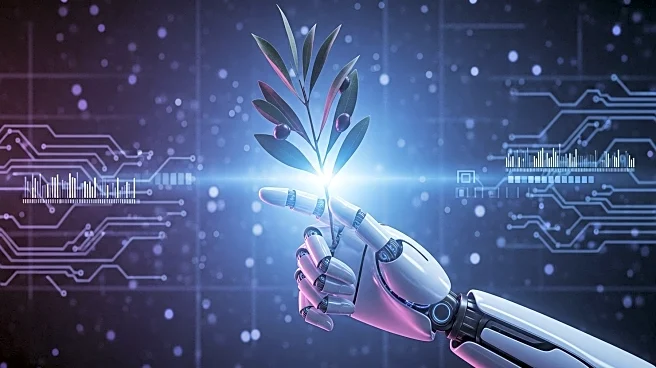What's Happening?
Steve Preston, CEO of Goodwill, has expressed concerns about the impact of artificial intelligence on employment, particularly among Gen Z. Preston, who previously served as the United States Secretary of Housing and Urban Development, highlighted that automation is leading to significant layoffs in entry-level and low-wage positions. He noted that call centers and sales roles are particularly affected, and the situation is exacerbating unemployment among young adults, especially those without college degrees. Goodwill, which operates over 650 job centers, is preparing for an increase in demand for its employment services as more young people face joblessness due to AI advancements.
Why It's Important?
The rise of AI and automation poses a significant challenge to the U.S. labor market, particularly for entry-level positions traditionally filled by young adults. This shift could lead to increased unemployment rates among Gen Z, affecting their ability to gain work experience and develop essential skills. The broader economic impact includes potential disruptions in workforce development and talent pipelines, as fewer entry-level opportunities may hinder career progression. Organizations like Goodwill play a crucial role in addressing these challenges by providing support and training to help young people adapt to the changing job landscape.
What's Next?
As AI continues to evolve, the demand for digital skills is expected to grow. Goodwill is actively engaging with employers to identify the skills needed for future job markets, emphasizing the importance of proficiency in digital tools and AI applications. Preston advises young people to focus on acquiring these skills to improve their employability. Additionally, there is potential for growth in clean tech sectors, such as solar panel installation and EV charging station maintenance, which do not require a college degree. These areas may offer alternative career paths for those affected by AI-driven job losses.
Beyond the Headlines
The shift towards AI and automation raises ethical and societal questions about the future of work and the role of education in preparing individuals for the workforce. As entry-level jobs become scarce, there is a need to rethink traditional career pathways and consider new models of skill development and mentorship. The impact on young adults' ability to envision a stable future could have long-term implications for societal well-being and economic stability.










